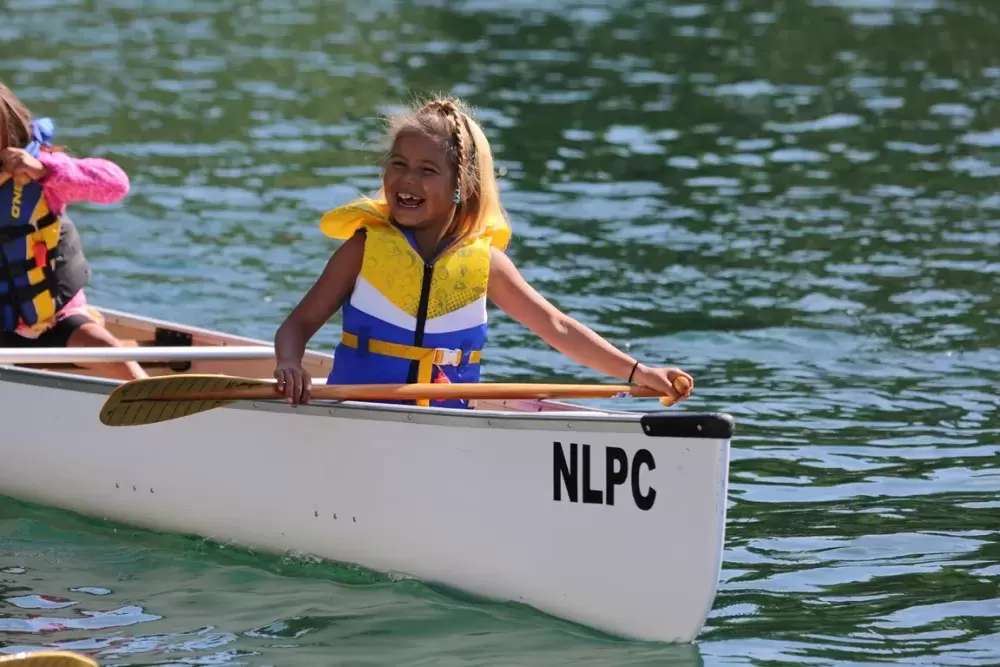Ditidaht’s fourth annual TRC Paddle Days June 10 and June 11 was a fun-filled event, with five schools and 130 visitors to the remote First Nation community taking part.
Paddle Days grew from a Truth and Reconciliation program that helped restore canoe skills on west coast waters, and the students from Ditidaht community school, where paddling has now been embedded into their regular physical education school program, have flourished.
Photo Gallery here (lots): http://www.hashilthsa.com/gallery/ditidaht-paddle-days-june-10-and-june-...
The Paddle Club has produced provincial champions, eight North American Indigenous Games champions, and one provincial canoe coach, said teacher Eva Clarke. And it’s put Ditidaht on the map.
It’s created a new legacy in education, far from the one when children were once removed from their families and communities and sent to residential school, including the notorious Alberni Indian Residential School. Late Ditidaht artist Art Thompson was one of the first of Canada’s residential school survivors to bring court action for his treatment in residential school, blazing a path that would eventually lead to the Indian Residential Schools Settlement Agreement and the Truth and Reconciliation Commission.
This year’s two-day paddle event included much more than just paddling competitions, which were held in early morning at Gus Bay on Nitinaht Lake. The wind picks up on the lake later in the day, and sends inexperienced paddlers into the weeds, so in the afternoon the organizers held cultural activities.
After a lunch of hotdogs and watermelon , donated in part by Fisheries and Oceans Canada, Tseshaht’s Haahuupayak and Ditidaht schools shared some of their cultural songs and dances with students from Pacheedaht, North Van’s Windsor House and Port Coquitlam’s Suwa’lkh schools.
Haahuupayak’s Grade 6 and 7 class did George Watts’ Gratitude Song to thank Ditidaht for hosting all the children, and their school song, composed by Doug Robinson, which is in the Chinook Jargon and asks ‘Where do you come from?”
Ditidaht also did two songs, a welcome song, and a fun dance called The Storm.
Later there was cedar bark bracelet weaving, canoe craft (where the young ones colored and made 3-D canoes from paper, storytelling, led by the infectiously joyous Sam Edgar, and Lahal, a stick game with lots of singing and drumming.
In the evening, the community hosted a dinner and fed about 300 people and honored the survivors of the residential school experience. Aaron Edgar Sr. emceed this portion of the dinner. As he introduced the survivors, they were presented with a vase of flowers, including woven cedar roses, and a card with a special message written to them. Edgar reminded the survivors they were loved in the community.
After the dinner, a school dance was organized.
Clarke said paddling, and Paddle Days, had really taken hold in Ditidaht, and it remains a good way to connect with families up and down the West Coast. And it celebrates the canoe culture, bringing it into the 21 century in a healthy and unique way.
Ditidaht is now preparing for the 2017 NAIG with an elite canoe team that will soon beginning practising three days a week under the instruction of coach Peter Amos. They will do dry land training too this year.
And the students in Kindergarten to Grade 12 will take paddling in PE from May to September, also under Amos’ instruction.
A $5,000 grant from Nike-7 will purchase kayaks this year, because at the last NAIG Ditidaht students medaled(silver and bronze) in kayaks without ever training in them, so Clarke said not having kayaks in the community was seen as a missed opportunity. Another $5,000 grant from VIA Sports will go to dry-land training or more kayaks.
Paddle Days was spearheaded by Clarke and teacher Christina Renneberg, but “it was all hands on deck,” with school staff and community members working hard to host such a big gathering. Clarke singled out Amos for his efforts, however. It couldn’t happen without him, she said.







